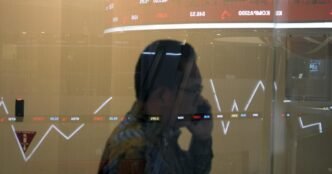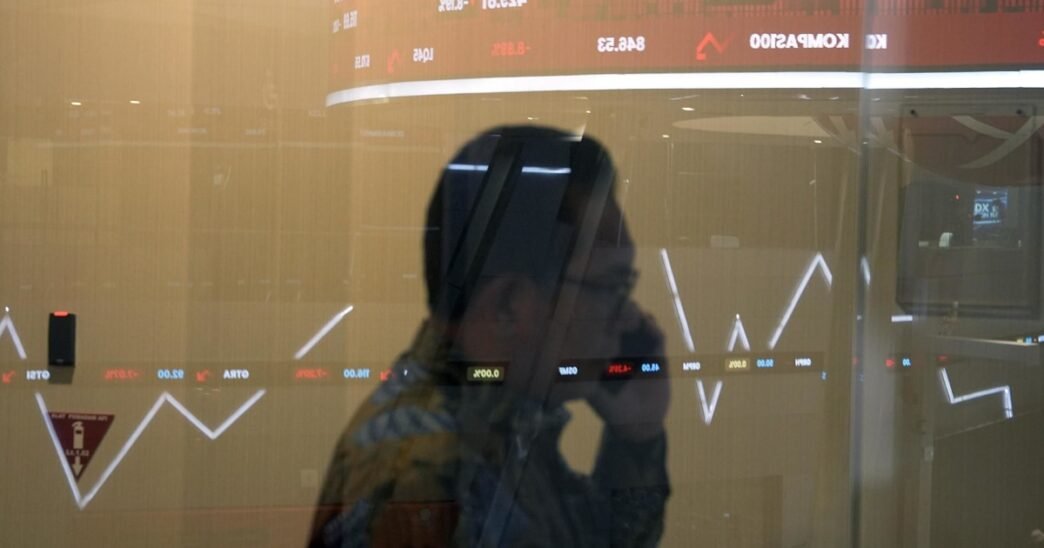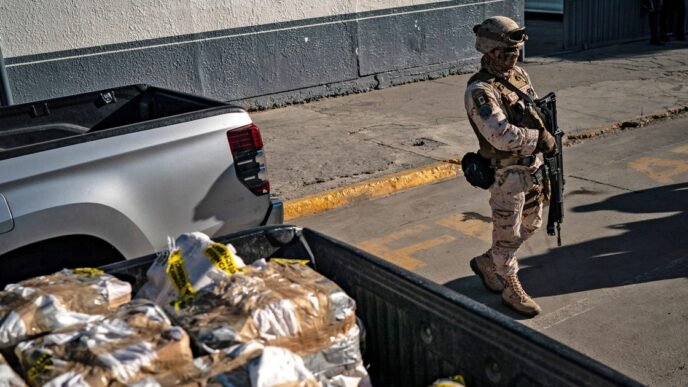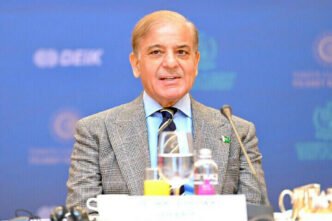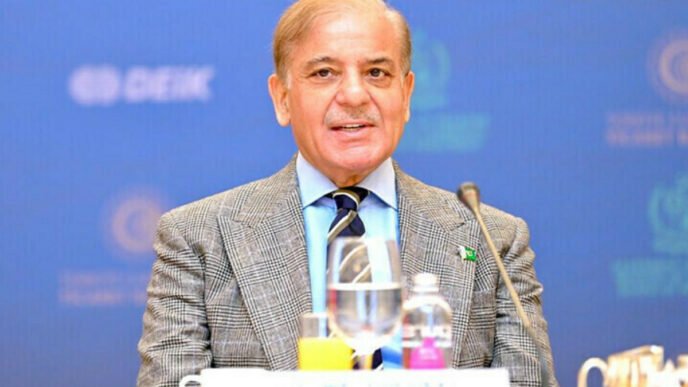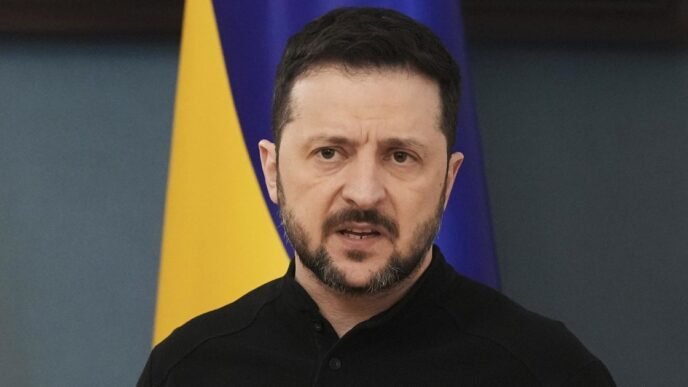Global stocks Tuesday clawed back a fraction of their enormous recent losses, with the turmoil from the Trump administration’s announcement of sweeping global tariffs last week calming down in financial markets, if not in the political arena.
Most major indexes in Europe and Asia climbed and premarket trading in the United States appeared to be cautiously positive, even as America’s trade war with China deepened, with Beijing announcing it will “fight to the end” after President Donald Trump threatened an additional 50% tariff on Chinese goods.
In U.S. premarket trading, which gives an indication of how markets will open, the S&P 500, the tech-heavy Nasdaq and the Dow Jones Industrial Average all edged up by between 1% and 2% after a wild trading day Monday left investors in no doubt about the scale of the impact Trump’s aggressive tariffs will have on the global economy. The announcement of the levies has wiped $6.6 trillion from markets in the past week.
Stocks in Europe rose, with the Stoxx 600 — the index of Europe’s largest companies — up 1.4% at around 7:30 a.m. ET after it shed 4.5% Monday. The major indexes in the United Kingdom, Germany, France and Italy all rose by between 1.5% and 2% after plunging by double-digit percentages in recent days.
Those reversals echoed similar gains in Asia, where major indexes in mainland China, Hong Kong and South Korea climbed between 1% and 3% and Japan’s Nikkei 225 index jumped 6%, paring most of its losses Monday that were so sharp and severe they triggered automatic circuit-breakers that prevent markets crashing.
One factor behind that increase may be the Japanese government’s confirmation that it has agreed to designate a Cabinet member to take on trade talks with the Trump administration.
Financial markets may have been calmer Tuesday, but the Trump administration’s levies continued to cause ructions in the U.S. business community. Two administration officials confirmed that members of the administration were already taking calls from business groups and setting up private meetings to allay investors’ worries.
Meanwhile, in the centers of power around the globe, political leaders continued to react with a combination of bafflement and fury to the newly announced U.S. trade policy and its stunning impact on financial markets.
European Commission President Usula von der Leyen said in a media conference Monday that the European Union — a common market comprising more than 500 million people — offered Trump a “zero for zero” tariff deal, which the U.S. president later rejected.
“These tariffs come first and foremost at immense costs for US consumers and businesses. But at the same time, they have a massive impact on the global economy,” she said.
“This is a major turning point for the United States.” Nonetheless, we stand ready to negotiate with the US,” she added. “Because Europe is always ready for a good deal. So we keep it on the table.”
European defense and aerospace, and heavy industry stocks rallied Tuesday, after plummeting the day before. While the announcement of tariffs has hammered their shares in recent days, those sectors have also been booted by Europe’s push to be self-reliant in defense.
Meanwhile, despite initial speculation that China might win a postponement on the introduction of tariffs, Trump said late Monday that the United States would impose 50% tariffs on China if Beijing did not reverse its 34% reciprocal tariffs.
China appeared to double down on its own position Tuesday, with its Commerce Ministry saying it will “fight to the end” if Trump’s additional tariffs on Chinese goods came into effect, calling its previous countermeasures “entirely justified.”
Trump said he is not looking to pause his tariffs before they go into effect and threatened that the new 50% duty on China, that would bring the total of U.S. tariffs on China up to 104% and go into effect Wednesday if Beijing did not withdraw its 34% tariffs on all U.S. goods.
“Additionally, all talks with China concerning their requested meetings with us will be terminated!” Trump wrote Monday on Truth Social. “Negotiations with other countries, which have also requested meetings, will begin taking place immediately.”
If relations with Beijing hadn’t already hit a fresh low over the past week, Vice President JD Vance’s remarks in an interview with Fox News on Thursday — he said that America “borrow[s] money from Chinese peasants to buy the things those Chinese peasants manufacture” — will have done little to soothe matters.
In a media briefing Tuesday, Chinese Foreign Ministry spokesperson Lin Jian told state broadcaster Shenzhen TV that “it is both astonishing and saddening to hear the vice president say such ignorant and impolite words.”
Trump also appeared unfazed by the market’s volatility that has stoked fears of a recession, especially as Beijing’s retaliatory tariffs are scheduled to take effect Thursday.
“I don’t mind going through it because I see a beautiful picture at the end,” he told reporters at White House on Monday, adding that he is “not looking” to pause tariffs, despite the uproar among investors and the business community.
“Tariffs will make this country very rich,” he insisted.
